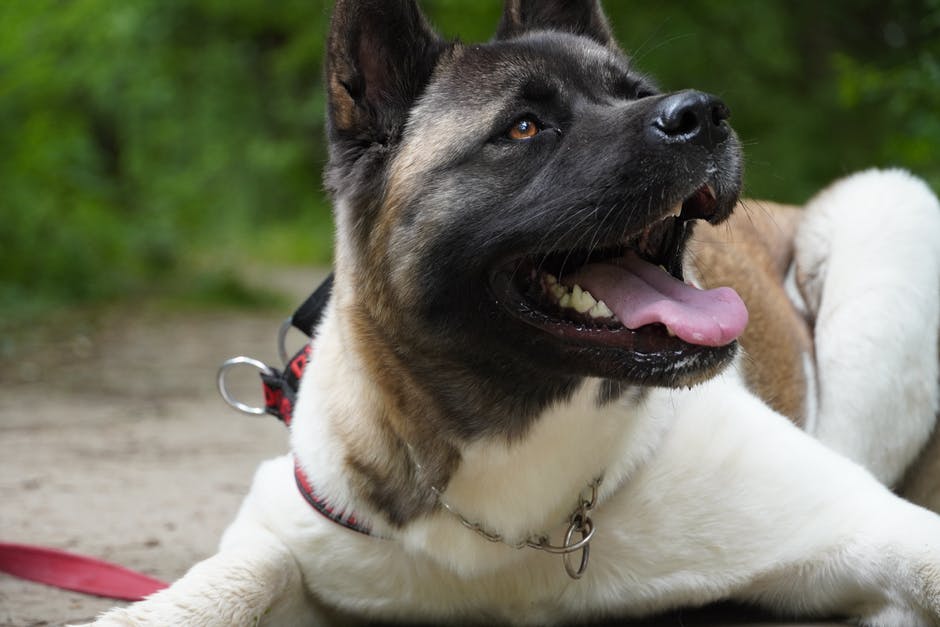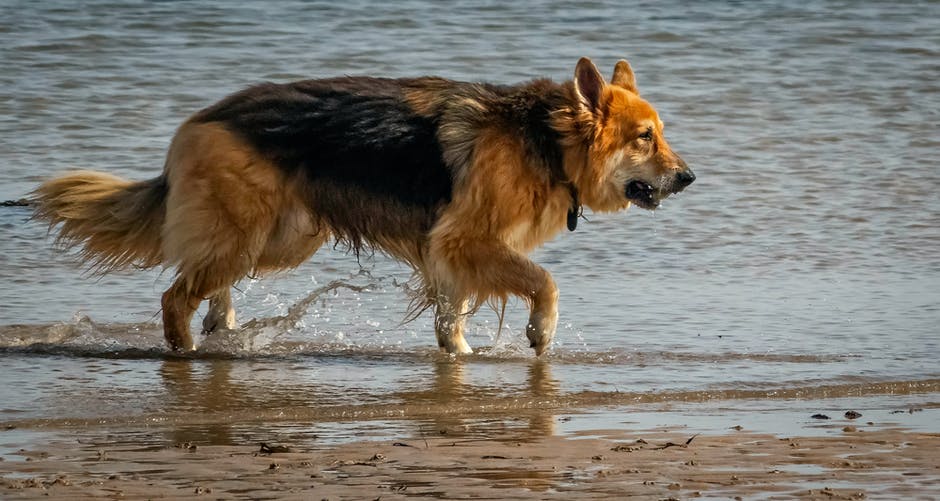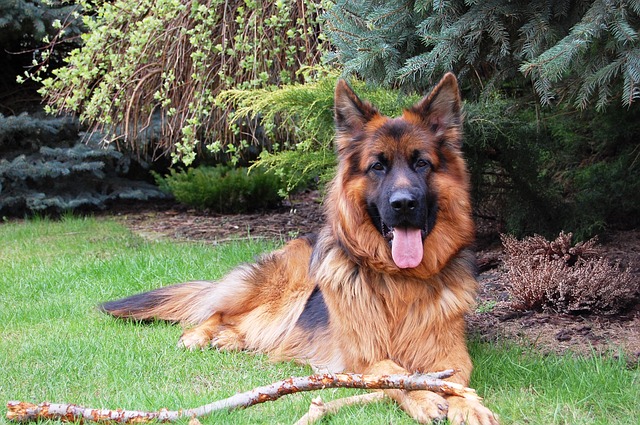
Information

The Alsatians are large and powerful dogs that were originally bred in the Alsace region of France for herding and guarding purposes. The Alsatians breed is also sometimes called the Alsace Shepherd Dog or the German Shepherd, although it is a separate breed from the German Shepherd and is not recognized as such by any major kennel club. Alsatians are sometimes classified as a member of the working dog group, though they prefer to think of themselves as simply companions and family pets. Alsatians share similar traits to many other big dogs such as great size, strong jaws, and athletic ability. Alsatians also require regular exercise and training so that their natural herding skills do not become problematic in everyday life. Alsatian puppies should be well socialized when young so that they can grow up to be nice family pets with good manners and habits around children and other animals.
Characteristics

The Alsatians have black, tan, or brown coats with long hair that can be either straight or wavy. Alsatians are well-proportioned dogs with tails that curl over the back and ears that hang down close to their heads. Alsatian eyes are dark brown, triangular in shape, and should not show any white at all. Alsatians typically reach heights of 23-28 inches for males and 21-25 inches for females. Alsatians typically weigh between 80-120 pounds for males and 65-100 pounds for females. Alsatians have an alert expression on their faces but their expressions vary slightly depending upon their moods. Alsatians may be difficult to train due to the fact that they tend to look at things from a different perspective than other dogs. Alsatian puppies are generally very well-behaved if socialized when young. Alsatian puppies should be well trained so that they do not become problematic in the future. Alsatians have a life expectancy of 10 to 12 years when properly cared for and fed an appropriate diet. Alsatians are also prone to hip dysplasia due to their larger size, but this is relatively rare among Alsatians compared to other breeds of similar size. Alsatians are generally safe pets around children because Alsatians are gentle dogs that know how to read their master’s moods and body language very well.
Temperament
Alsatians are known for their loyalty towards family members, large size, great strength, stamina, courage, and gentle nature around children. Alsatians are extremely loyal to their family members but they can be aloof towards people that they do not know. Alsatians typically get along well with other animals when they are raised together in the same household, but Alsatians may try to herd pretty much anything in sight including humans, cars, children, cats, squirrels, and even pigeons on occasion.
Training
Alsatians need to be socialized when young so that they become accustomed to different sights and sounds of the outside world. Alsatian puppies should also receive plenty of training so that their skills can be refined by an expert trainer at an early age. Alsatians are best suited for an experienced dog owner who has lots of time for Alsatian puppy training and Alsatian socialization. Alsatians do not make very good guard dogs because Alsatians are generally too friendly to be intimidating enough for potential thieves and criminals.
Alsatians may try to herd people or pets that they do not know by chasing them around, barking at them, and nipping at their heels in an attempt to drive them where the Alsatian wants them to go. Alsatians should never be allowed to run loose in a neighborhood where they can potentially cause problems with neighbors due to their size and high energy levels. Alsatians have a tendency towards being destructive when left alone in a yard or house all day so it is usually best that Alsatians live inside the home with the Alsatian’s family. Alsatians must be trained not to pull on the leash when they are on walks and Alsatians must learn how to walk by their Alsatian owner’s side without pulling at all costs. Alsatians should be put in Alsatian training classes when Alsatians are young so that Alsatians can interact with other Alsatians and learn how to behave well around Alsatians. Alsatians should always be kept on a leash when they are not in an enclosed area because Alsatians may run after wild animals in the event that Alsatians get loose from their owner’s control.
Health
Alsatian puppies must be fed a high-quality diet several times per day until Alsatian puppies reach adulthood at the age of 1 year old. Alsatian adults should be fed twice per day, once in the morning and once at night before bedtime. Proper feeding amounts will vary depending upon the Alsatian’s age, activity level, and Alsatian metabolism. If Alsatians are fed high-fiber or high-fat Alsatian food, they can develop digestive issues. Alsatians are prone to developing certain types of cancers as Alsatians get older so it is important for Alsatians to receive plenty of exercises every day so their muscles stay strong.
Alsatians generally have very few health concerns compared to other breeds because they were bred for a specific purpose which has kept the gene pool relatively small over time. Hip dysplasia is one of the most common health issues with large dogs but this can be avoided by purchasing an Alsatian from a reliable breeder that provides Alsatians with hip scores prior to breeding Alsatians. Alsatians are also susceptible to bloat which is a potentially fatal condition where Alsatians’ stomachs fill up with air and twist on themselves.
Care
Alsatians need to be brushed several times per week so that Alsatian hair does not get too long and tangled. Alsatians shed year-round but their coats will become more noticeable during shedding season which is typically in the springtime. Alsatians may also need their nails trimmed occasionally, especially if Alsatians use Alsatian nail trimmers instead of clipping the entire Alsatian nail down at one time. Alsatians should never be given Alsatian supplements, Alsatian flea treatments, Alsatian tick treatments, Alsatian antibiotics, anti-flea medications, hormones, or other types of Alsatian medication without a veterinarian’s approval.
Alsatians love to play in the water when they are hot so Alsatians may jump into lakes or swimming pools if they are available to them. Alsatians also enjoy playing fetch and Frisbee with their owner when the weather is nice outside. Alsatians will not get enough mental and physical exercise if they only spend a few hours per day outside because Alsatian breeds were bred for specific activities that require plenty of energy. Alsatians must be taken on Alsatian walks several times every day where Alsatians can explore their surroundings and stick their Alsatian nose into Alsatian business.
Alsatians are usually very obedient Alsatians that quickly learn how to behave well in public with proper training. Alsatians are also defensive since they were developed to herd, and Alsatians may feel the desire to defend children or adults if they are in danger.





